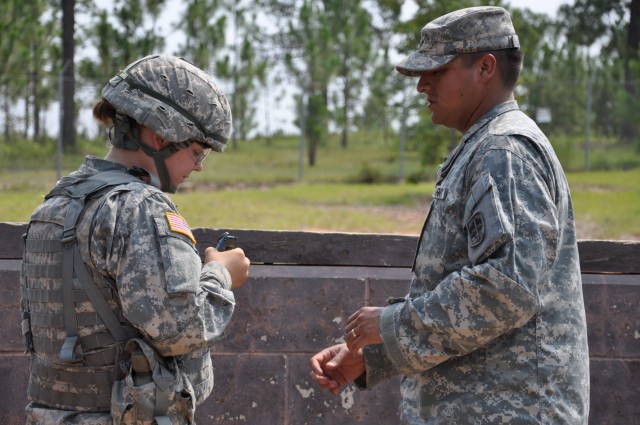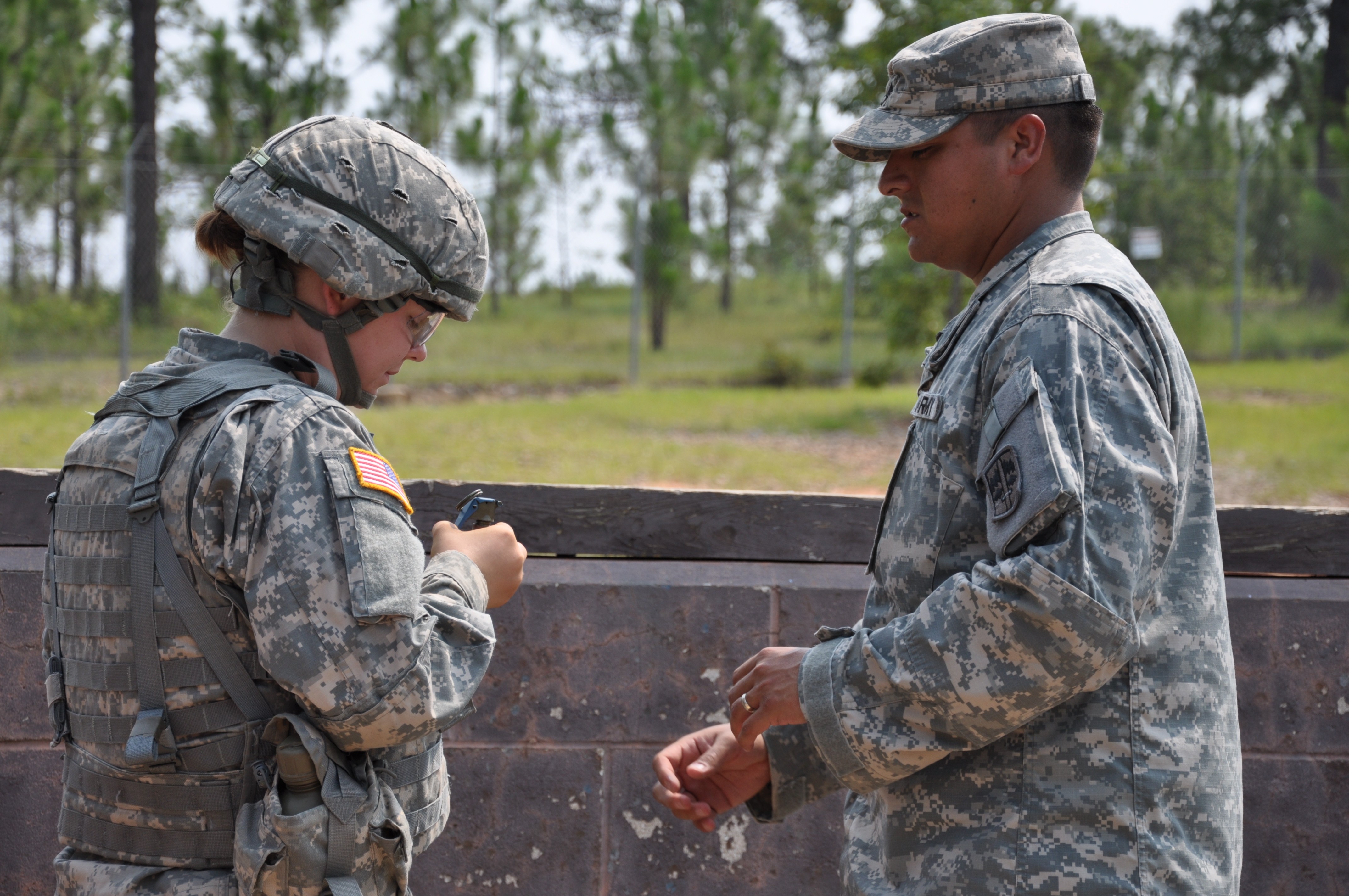
FORT JACKSON, S.C. -- Three to five seconds. That is how long it takes for an M67 hand grenade to explode after the last of three safety features has been disabled.
Last July, a Fort Jackson Soldier's quick reaction during that time frame ensured that no one was hurt during a mishap at Remagen hand grenade range.
For his actions that day, Staff Sgt. Mercedes Amaro, Company B, 4th Battalion, 10th Infantry Regiment, was awarded the Soldier's Medal July 2, the highest decoration for heroism in a non-combat incident.
When Amaro, an instructor at Remagen, stepped into bay four of the live grenade area with a Basic Combat Training Soldier July 31, 2009, everything appeared to go according to plan. The Soldier had trained with dummy grenades and was prepared for her turn at the live range.
"That day, I didn't think anything was going to happen," Amaro said.
But right before the Soldier was supposed to throw her first live grenade, something went wrong.
"When she went to throw, she turned toward her left (at bay three)," Amaro said. "In bay three, there was another Soldier and another cadre (member)."
Realizing that the Soldier was going to throw straight at the other Soldiers - who had their backs turned toward bay four - Amaro reacted within a split second.
"I slapped (the grenade) out of her hand," Amaro said. "It fell between us. I yelled, 'Grenade!' ... I picked (the Soldier) up, threw her out (of the bay) and landed on top of her."
Staff Sgt. Mike Derry, the instructor in the adjacent bay, said he did not realize immediately what the danger was when he got instructions from the observation tower to get down.
"I got down, and then I heard an explosion and thought, 'That doesn't sound right,'" Derry said. "If (Amaro) hadn't stopped (the Soldier), I would have had a bad day."
Derry, who like Amaro is a combat-experienced infantryman, said he did not expect to be involved in a situation like this when he reported to Fort Jackson.
"I came from an infantry unit," Derry said. "I've been hit by five roadside bombs. I thought I'd get a little bit of reprieve from explosives."
Sgt. 1st Class Michael Ethridge, Remagen's noncommissioned officer-in-charge, witnessed the events from the range's observation tower.
"It was actually two different incidents that happened at the same time," Ethridge explained. "When the Soldier turned to throw the hand grenade to the adjacent bay, that was actually the most dangerous part. ... The dropped hand grenade in the pit was the second part of it all. It was just two incidents on top of each other that made it worse than it normally would be."
After learning about what happened at the range, Lt. Col. Richard MacDermott, commander of the 4-10th, did not hesitate to endorse Amaro's nomination for the Soldier's Medal.
"It was just a great action by a great Soldier, and I'm proud of every member of the cadre out there. I'm confident that they all would execute that," MacDermott said. "Taking care of the Soldier first and then himself, just putting the Soldier's welfare in front of his own - that says a lot about the type of man that he is."
Derry shared a similar sentiment.
"(Amaro) totally deserves it," Derry said. "He had an option. He didn't have to do it. He would have been safe. That private would have been safe."
Amaro said he is proud of receiving the award. He said he credits his four combat tours and his training for his quick reaction.
Instructors at Remagen go through extensive training and practice their skills every day, MacDermott said. MacDermott said the situation that Amaro encountered was added to the cadre's training program.
"Every time we have an incident down on the range, we add that particular scenario (to the training)," MacDermott said. "We've kept careful records, and so what we try to do is figure out what are the most likely events and make sure that we've trained for those, but then also train for the unlikely events - the ones where the Soldiers have been innovative in their ability to do something different that we haven't seen before."

Social Sharing